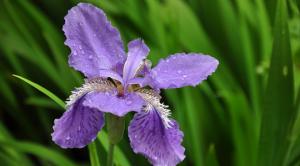Introduction
Nightshade plants are a broad category of plants that are known to contain alkaloids, which can have both medicinal and toxic properties. Many different species of plants fall under this category, which includes vegetables, herbs, and even some ornamental plants. In this article, we will explore what exactly is a nightshade plant, what are its characteristics, and its potential benefits and harms.
What are Nightshade Plants?
Nightshade plants are a type of flowering plant that belongs to the family Solanaceae. This family includes more than 2,000 different plant species, including eggplants, peppers, tomatoes, and potatoes. These plants are widely distributed across the world, with many species native to South America.
What are the Characteristics of Nightshade Plants?
Nightshade plants are characterized by a few distinctive features. Firstly, they all contain alkaloids, which are chemical compounds that have a bitter taste and can have different effects on the body. Secondly, they all have a typical flower shape with five petals that often form a funnel shape. Finally, many nightshade plants have a potent odor that is distinctive and can be easily recognized by experienced gardeners.
What are the Potential Benefits of Nightshade Plants?
Nightshade plants have been used for medicinal purposes for centuries, with various alkaloids showing potential benefits. For example, capsicum, which is found in hot peppers, has been shown to have anti-inflammatory properties and can help to alleviate pain. Another alkaloid, solanine, which is found in potatoes and eggplants, has been shown to have potential health benefits, such as reducing inflammation and improving cognitive function.
What are the Potential Harms of Nightshade Plants?
While nightshade plants have potential health benefits, they can also be harmful if consumed in large amounts. For example, some alkaloids found in nightshade plants are toxic and can cause adverse health effects. For example, atropine, which is found in belladonna, can cause hallucinations and even death if consumed in large enough quantities. Additionally, some people may be sensitive to nightshade plants, and consuming them can lead to allergic reactions.
Conclusion
In conclusion, nightshade plants are a broad category of plants that contain alkaloids and can have both medicinal and toxic properties. While they can provide potential health benefits, consuming nightshade plants can also be harmful in large amounts. It is essential to understand the potential benefits and harms of nightshade plants and to consume them in moderation.

 how many times do yo...
how many times do yo... how many planted tre...
how many planted tre... how many pine trees ...
how many pine trees ... how many pecan trees...
how many pecan trees... how many plants comp...
how many plants comp... how many plants can ...
how many plants can ... how many plants and ...
how many plants and ... how many pepper plan...
how many pepper plan...




























